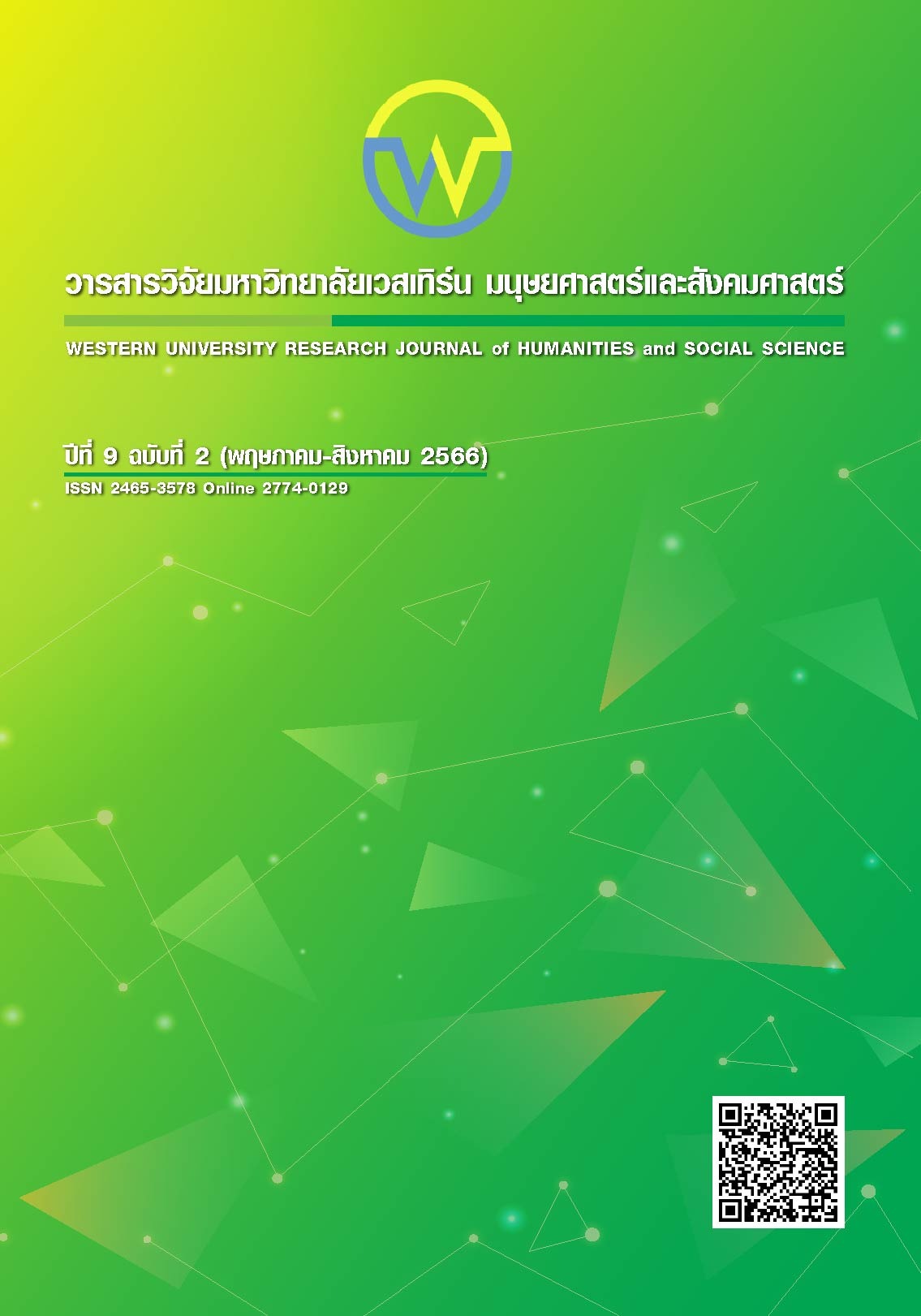การวิเคราะห์ผลกระทบจากการใช้นโยบายด้านภาษีในช่วงแผนพัฒนา เศรษฐกิจและสังคมแห่งชาติฉบับที่ 12 ด้วยแบบจำลองดุลยภาพทั่วไป เชิงสุ่มแบบพลวัต
Main Article Content
บทคัดย่อ
งานวิจัยนี้มีวัตถุประสงค์ 1) เพื่อศึกษาผลกระทบของระบบเศรษฐกิจจากการใช้นโยบายการลดภาษี 2) เพื่อศึกษาการเปลี่ยนแปลงค่าตัวทวีทางเศรษฐกิจจากการใช้นโยบายการลดภาษี และ 3) วิเคราะห์แนวทางการใช้นโยบายการลดภาษีที่เหมาะสมในแต่ละช่วงเวลา รูปแบบการวิจัยเป็นการวิจัยเชิงปริมาณ ทำการเก็บรวบรวมข้อมูลทุติยภูมิรายไตรมาส ช่วงปี 2560-2564 จากสำนักงานสภาการพัฒนาเศรษฐกิจและสังคมแห่งชาติ สำนักงบประมาณ กรมบัญชีกลาง ธนาคารแห่งประเทศไทย กระทรวงแรงงาน สำนักงานสถิติแห่งชาติ และกรมสรรพากร วิเคราะห์ข้อมูลด้วยแบบจำลองดุลยภาพทั่วไปเชิงสุ่มแบบพลวัต และใช้สถิติเบย์ในการประมาณค่าพารามิเตอร์ ผลการวิจัยพบว่า 1) การลดภาษีเงินได้บุคคลธรรมดาส่งผลดีต่อตัวแปรในแบบจำลองมากที่สุด ดังนั้นหน่วยงานที่เกี่ยวข้องควรพิจารณาการลดภาษีเงินได้บุคคลธรรมดาเป็นลำดับแรกๆ 2) การบริโภคครัวเรือนหาเช้ากินค่ำ และการลงทุนภาคเอกชน เป็นตัวขับเคลื่อนอุปสงค์มวลรวมทั้งในระยะสั้น ระยะกลาง และระยะยาว 3) การลดภาษีเงินได้บุคคลธรรมดาส่งผลดีต่อการทำงานของตัวทวีการบริโภคครัวเรือนหาเช้ากินค่ำ และการลงทุนภาคเอกชนมากที่สุดในทุกระยะ ยกเว้นการลดภาษีเงินได้นิติบุคคลที่ทำให้ตัวทวีการลงทุนภาคเอกชนเพิ่มขึ้นมากที่สุดในระยะสั้น ผู้มีส่วนเกี่ยวข้องสามารถใช้ข้อค้นพบที่ได้เป็นส่วนหนึ่งในการพิจารณาทางเลือกการใช้นโยบายการคลังต่อไป
Article Details

อนุญาตภายใต้เงื่อนไข Creative Commons Attribution-NonCommercial-NoDerivatives 4.0 International License.
เอกสารอ้างอิง
Alper, E. A., (2018). The Relationship of Economic Growth with Consumption, Investment, Unemployment Rates, Saving Rates and Portfolio Investments in The Developing Countries. Gaziantep University Journal of Social Sciences, 17(3), 980-987
Amir, H., Asafu-Adjaye, J., & Ducpham, T. (2013). The impact of the Indonesian income tax reform: A CGE analysis. Economic Modelling, 31, 492–501.
Arnold J.M., Brys B., Heady C., Johansson Å., Schwellnus C., & Vartia L. (2011). Tax policy for economic recovery and growth. Econ. J., 121(550), 59–80.
Chen, Z., Liu, Z., Suárez Serrato, J. C., & Xu, D. Y. (2021). Notching R&D investment with corporate income tax cuts in China. American Economic Review, 111(7), 2065-2100.
Hone, T., Mirelman, A. J., Rasella, D., Paes-Sousa, R., Barreto, M. L., Rocha, R., & Millett, C. (2019). Effect of economic recession and impact of health and social protection expenditures on adult mortality: A longitudinal analysis of 5565 Brazilian municipalities. The Lancet Global Health, 7(11), 1575–1583.
Li, B., Liu, C., & Sun, S. T. (2021). Do corporate income tax cuts decrease labor share? Regression discontinuity evidence from China. Journal of Development Economics, 150, 102624.
Yagan, D. (2015). Capital Tax Reform and the Real Economy: The Effects of the 2003 Dividend Tax Cut. The American Economic Review, 105(12), 3531–3563.
Smets, F. and Wouters, R. (2003), An Estimated Dynamic Stochastic General Equilibrium Model of the Euro Area. Journal of the European Economic Association, 1, 1123-1175.
Stede, J., Arnold, K., Dufter, C., Holtz, G., von Roon, S., & Richstein, J. C. (2020). The role of aggregators in facilitating industrial demand response: Evidence from Germany. Energy Policy, 147, 111893.
Yang, Z. (2006). Empirical Studies on the Relationship Between Public and Private Investment and GDP Growth, Applied Economics, 38(1),1259-1270.


